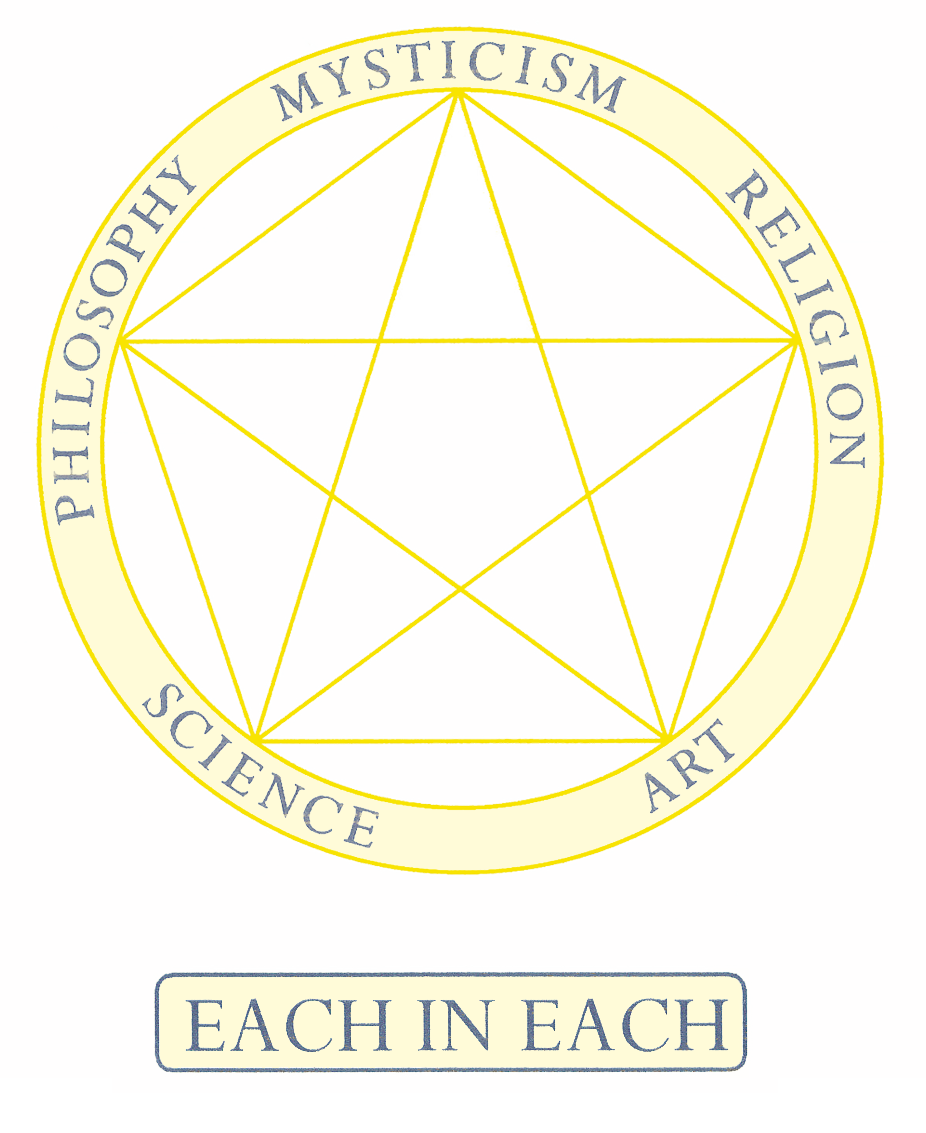THE UNIVERSAL BROTHERHOOD
ON THE SEARCH FOR TRUTH
All men naturally seek for Truth and believe themselves to possess at least some portion of it. Even the ignorant and the skeptic possess a minimum of ultimate certainty, or can logically be shown to implicitly assert some minimum.
The idealist who denies the reality of his own existence is contradicted by his own denial, by the fact that it is he himself and not another who makes the denial.
The skeptic who loudly proclaims and justifies his own skepticism is continually insisting on the truth of his own ignorance. To that one truth (there is no truth), at least, he clings. He will permit himself no doubt upon that, and he will maintain it with a fervor equal to anything which the defense of a complete system of truth could arouse in any philosopher.
Indeed the denying of anything or the doubting of anything whatever, if it be a rational act, necessarily implies some previous process of reasoning, and is therefore an implicit assertion of the truth of the conclusion arrived at by that process, and an acknowledgement that some truth, at least, is attainable.
So, too, those who assert that to search for Truth is useless or hopeless or foolish do so only because they believe themselves to already possess as much certainty and truth as anyone can acquire. They admit implicitly that at least some (this) truth is attainable.
The same is implied in almost every human activity. Every deliberate action implies a choice between that action and another, or between that action and no action at all. But every choice implies a preference, and every preference is prompted by some reason. That is to say, whatever is preferred is so preferred because of some opinion. But opinions are grounded in truth, and to have an opinion on any subject is to admit the possibility of attaining to at least sufficient truth on that subject to justify the opinion. Hence the very activities of human life prove conclusively that the search for truth is not a vain quest.
Indeed, the whole history of human thought is made up of the search for and the propagation and utilization of real or supposed truth. All philosophies, all religions, all sciences, all schools of thought of any kind, in every age, have endeavored to teach some truth or truths and have asserted the value of truth as such. The analytical methods of Socrates, of Aristotle, of the Jain logicians and of the Scholastics aimed at sifting out previous truth from the mass of data available. The synthetical tendency of Ionian religions and syncretism of the Assassins and the Theosophists were alike inspired by a desire to gather together all religious truth wherever found. The motto of the Blavatskyite Theosophists declares that no religion is higher than truth, and the Sacred Scriptures of Christianity teach that truth will set its adherents free.
Whatever is universally sought after must be in the highest degree desirable. When therefore a claim is made by those on whose behalf this paper is circulated that they possess the truth and are willing to impart it to others, their claim should receive attention, in spite of any suspicions that the claim may be fraudulent, for there is no way of dispelling suspicion and proving the claim except that of actually imparting what is proclaimed, and this requires the attention and response of the enquirer.
Whoever, therefore, believes himself to be without truth, or to lack a full and adequate measure of it, should welcome this opportunity of gaining it from those who promise not merely to impart it but at the same time to prove its validity.
Whoever believes himself to already have the truth will, if he really has it and has learnt wisdom from it, eagerly welcome the opportunity of comparing it with that which others hold to be the truth, so that he may give to them, if perchance they lack anything, whatever he has or believes himself to have, and may receive from them, if perchance he lack anything, whatever is needful to complete his world-view or to fill any hiatus in his body of thought.
Even those who believe that all truth is relative to the recipient and consequently only relatively communicable, should be roused by the claim herein made that those who hereby promise to impart the truth undertake also to definitely dis-prove the alleged “relativity” of truth, and to demonstrate absolutely and beyond cavil that it an opinion false and obscurantist. Logically, such a claim should at least be listened to and heard at length before a judgment is formed upon it.
There are many who know themselves to be ignorant, at least in part, but believe themselves to possess sufficient truth “for all practical purposes”. Such people are possessed of a inertia which has laid a heavy grip upon them and will, if not resisted, slowly and surely petrify their souls. They should bestir themselves, shake off their slothfulness, and more fully conscious of the void within them and the hope before them, should stretch out eager hands to those who claim to be able to satisfy their needs.
——
The reader who sincerely desires to know the Truth or as much of it as they are able to receive, or who, believing themselves to possess it already, would like to compare what they have with that which others have to give, should so state to the person from whom he has received this paper; or if they do not know how to reach them, they may write to the address given below. But if they have not already read the Open Instruction on Aspiration and Attainment, on Right Knowledge and on The Duty and Privilege of Joy and Joy-giving, they should first ask to be supplied with them.
